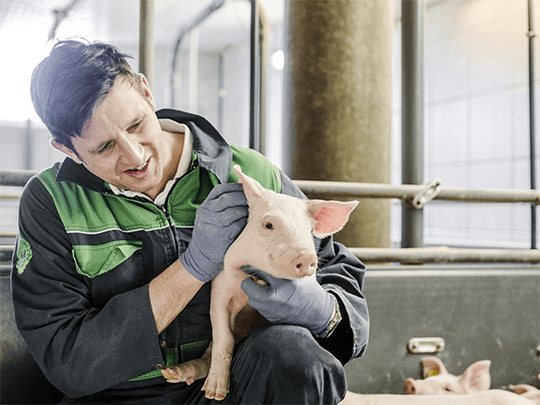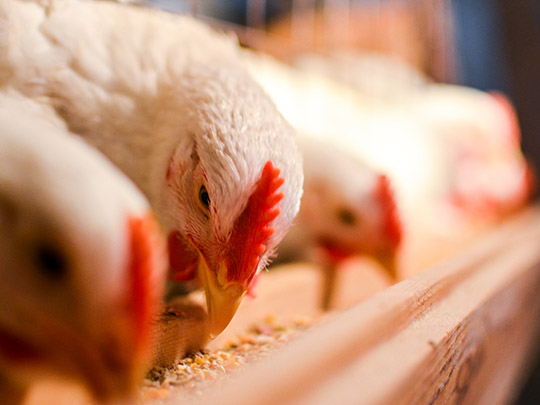In the spotlight: animal welfare & feeding - part 1
The topic of animal welfare has been on everyone's lips for several years now. But what does animal welfare actually mean? What does animal-friendly husbandry look like, and what role does feed play in this context? And, of course, we will talk about phytogenic feed additives. Because: what would a Delacon article be without the influence of the phytogenic universe?

What does animal welfare mean?
Animal welfare is more current than ever. Consumers of today want to buy animal-derived foods with a good conscience, while retailers are happy to comply with this wish. Farmers are also greatly interested in animal welfare, as thoroughly healthy and resilient animals guarantee optimum performance and are more likely to cause fewer costs (e.g., medical treatment).
Finally, it is an essential assumption for safe, high-quality food and profitable animal production.
Five freedoms for welfare
Although most of us often read or talk about this topic, the term animal welfare is difficult to define and put into words. The principle of the five freedoms serves to make such a slightly vague term precisely definable and verifiable, thus representing the basis for many evaluation systems.
This internationally recognized concept is defined, considered, and secured by the Animal Welfare Committee (AWC, formerly FAWC, renamed in 2019), including the following (1):

- Freedom from hunger and thirst
(Access to fresh water and balanced and nutritious feed) - Freedom from discomfort
(Suitable housing such as a pasture shelter, dry walking, and soft resting areas) - Freedom from pain, injury, and diseases
(Preventive measures maintain the health and integrity of the animals; sick and injured animals are cared for by appropriate treatment; amputations are avoided, or the animals are anesthetized during such procedures) - Freedom from fear and distress
(Fear and stress are prevented by proper handling of the animals and appropriate husbandry conditions, e.g., by not using propelling instruments) - Freedom to express normal and natural behavior
(The opportunity to perform their species-specific behavior, e.g., by having adequate space, not being tied up, and having contact with outdoor climate)
Did you know?
Worldwide, these five freedoms are recognized as the gold standard for animal welfare and encompass the animals' mental and physical well-being.
Feed and feeding take a key role
Meat, milk, and eggs have always been important protein sources, respectively food, coming from different animals. And as different as these animals are, so is their nutrition. Only with tailored and optimal feeding strategies can our farm animals remain resilient, develop well, and fully exploit their genetic potential.
Modern feeding strategies are built on need-based supply specifications. Though, it goes without saying that a high level of hygiene in the feed itself and, of course, in the feeding facilities is just as important as an adequate and accurate supply of energy, nutrients, minerals, and active ingredients to the animals. In recent decades, the focus has progressively been shifted to efficient, resource-saving, and sustainable feeding. Simultaneously, producing high-quality animal-derived food has become a high priority in feeding the world.
Today, in the ongoing process of optimizing feeding strategies, the impact of feeding on animal welfare is increasingly being taken into account, too.
Read more about the influence of feeding on animal welfare, the important role of a balanced microbiome, and the support of phytogenic feed additives in part 2.

Elisabeth Rohrer
After her study in agriculture sciences at the university of natural resources and life sciences in Vienna, Elisabeth joined the Delacon team in December 2013 as Technical Communications Manager - a position, she always exerted with pleasure. Since 2021, her task areas have been extended and thus, she is also supporting colleagues in writing offside the technical focus as Content Manager. Elisabeth describes herself as a great animal and nature lover and prefers to spend her free time high up in the mountains with her little family, away from the hustle and bustle.










